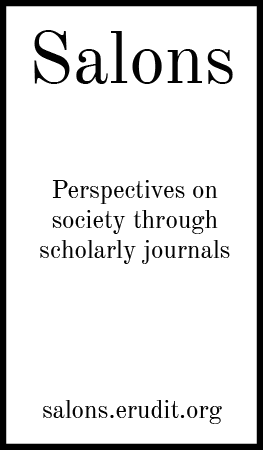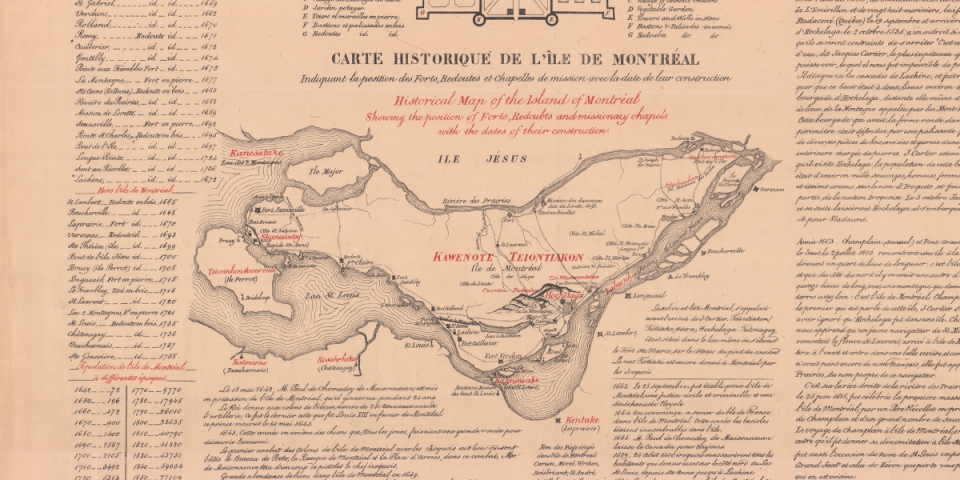In this era of the 24-hour news cycle, alternative facts and the proliferation of hard-to-verify sources, the online magazine Salons reminds us that research in the humanities and social sciences plays a key role in helping us analyze and understand society.
Salons invites the public to reflect on various societal issues as we read and review various articles published over the years in scholarly journals. This is a way for the magazine to showcase the abundance and importance of reputable and rigorously developed research. It also demonstrates the value of easy access to this information, as the articles and other resources featured in Salons are freely available to all.
Instead of offering frenetic commentary and instant analysis,
Each month between June 2017 and June 2018, a well-known researcher and a stakeholder in the cultural or academic fields will provide commentary on a key societal issue. This analysis will draw on a bibliography of other sources on the issues, as an invitation to the public to explore the articles listed.
“Research in the humanities and social sciences is exceptionally rich in Canada. Its results are generally disseminated as articles published in scholarly journals,” explained the director of the Salons project, Vincent Larivière, a professor at the University of Montreal and Scientific Director of the Érudit platform.
“A research article often represents years of work and analysis for a researcher and undergoes a rigorous evaluation process. Our goal is to remind the general public of the role played by these publications in society as a whole and to demonstrate the extent to which research is now available to all,” he added. “Thanks to digital technologies and open access, academic knowledge has never been so easy to attain. Salons is a kind of monthly stylistic exercise that will introduce the general public to these resources and show how accessible they are, as well as how relevant and rich.”
The project takes the opportunity provided by Canada’s 150th anniversary celebrations to bridge the gap between the academic community and civil society, as well as between the country’s two linguistic communities, since the site is completely bilingual. It will examine the question of Canadian identity by looking at 13 themes: linguistic duality in national celebrations, the inclusion of Indigenous communities in archaeological projects, educational changes, and feminist perspectives on Canada.
Research as a public good
Salons advocates the idea that research is a public good and that access to knowledge must be as open as possible. In keeping with these principles, the articles presented in the monthly bibliographies are available through open access, with the magazine’s texts disseminated under a Creative Commons open content license. There are also many links to the databases of various public archives.
The project is coordinated by the Érudit Consortium and has been placed under the leadership of Vincent Larivière (University of Montreal) and Jean-Philippe Warren (Concordia University) with support from a team of researchers from several Canadian universities. It received financial support from the SSHRC (Connection/Canada 150 Programs) and is backed by several Canadian research organizations, including the Federation for the Humanities and Social Sciences.
Browse through issue number 3 of Salons, which explores the role played by Indigenous communities in archaeological research.


